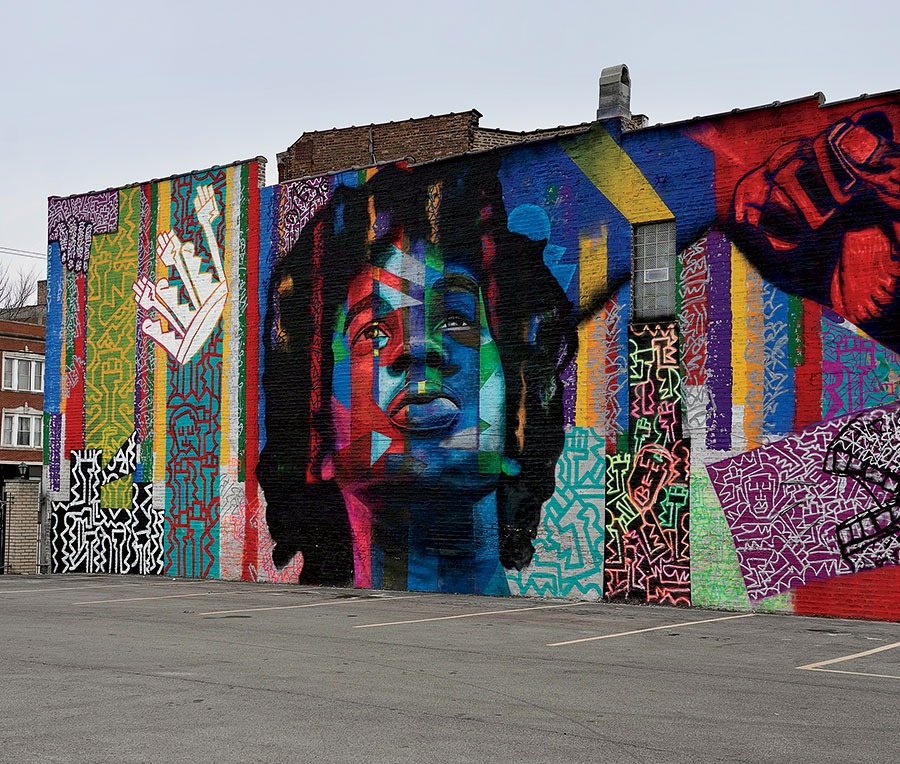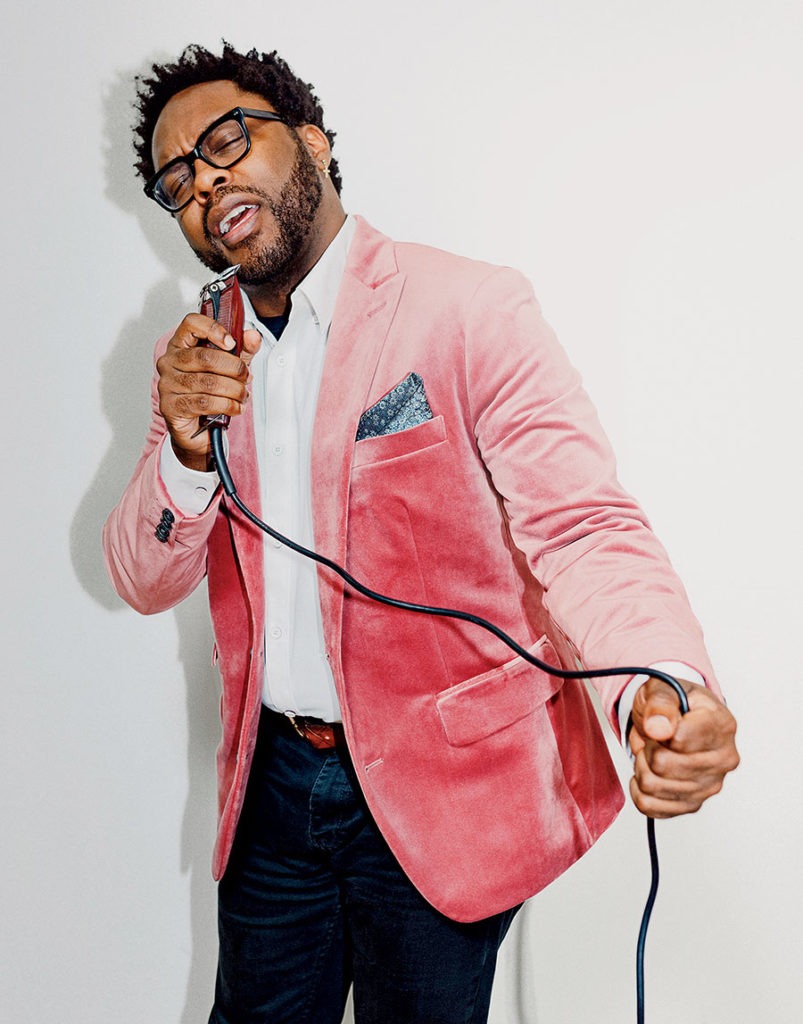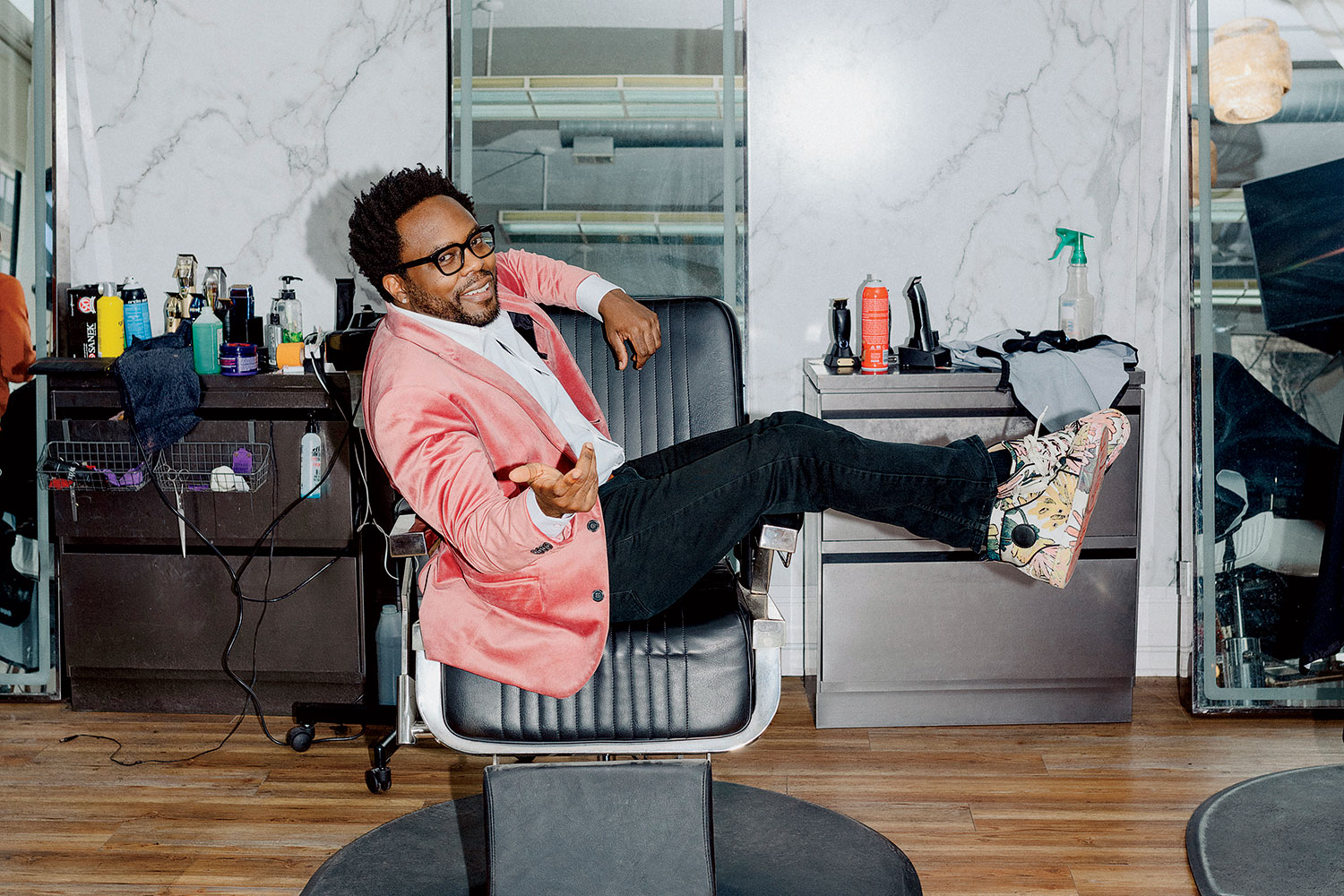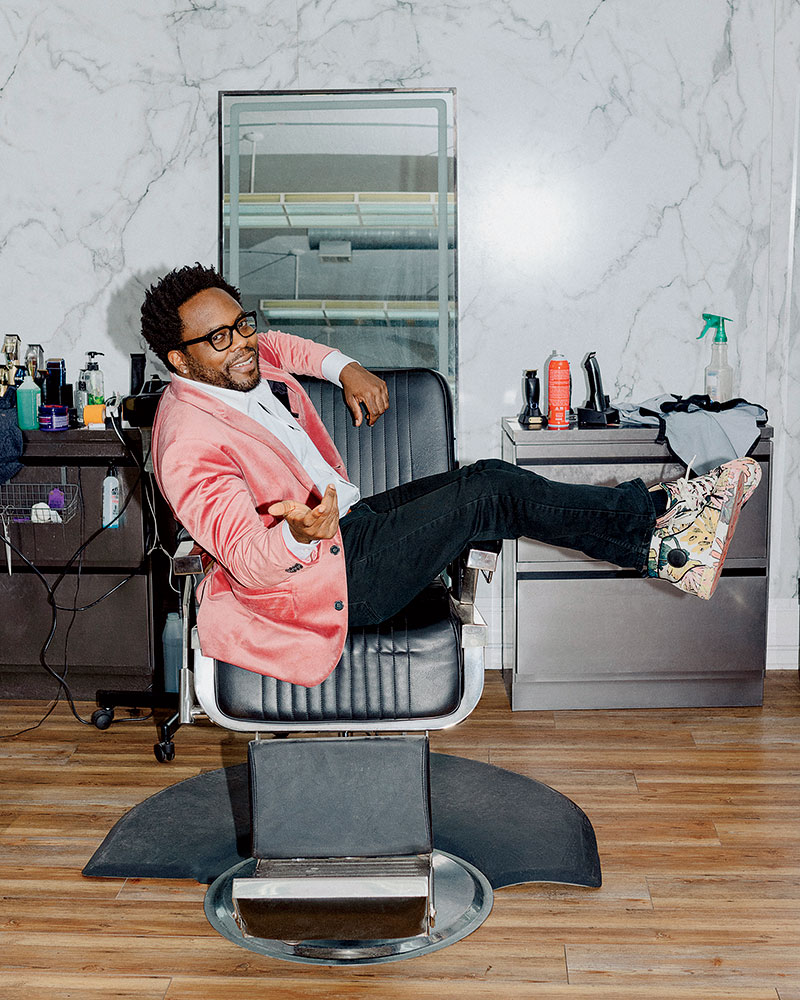When Will Liverman and DJ King Rico started writing The Factotum, a loose retelling of Rossini’s The Barber of Seville centered on — what else? — a modern-day barbershop, they planned to set it in 1990s Virginia Beach. That’s where they both grew up; the pair met as teenagers at the Governor’s School for the Arts in Norfolk, Virginia. But as the story evolved, Liverman and Rico realized the right place for their new opera was Chicago — the source, as Liverman puts it, of so much “Black greatness.”
Premiering February 3 to 12 in a Lyric Opera production, The Factotum focuses not on fame but rather on Chicago’s Black quotidian. As director and cowriter Rajendra Ramoon Maharaj puts it, “We want to celebrate the average human, who is Black, who’s living in these communities, and to have people experience a culture that is familiar to many of us but may not be to others.”
The Factotum follows brothers Mike (played by Liverman) and Garby as they struggle for control of their late father’s South Side barbershop. Woven into their conflict are their community members: niece Cece, who’s about to head to Howard University to study dance; Rose, who’s romantically entangled with Garby, and her ex, CJ; beautician Chantel and her son Neil; Sandra, a regular; and the barbershop quartet of Bootleg Joe, Sam, Charlie, and Leeroy.

For The Factotum’s creators, Black music was essential to telling the story of the Black barbershop. Liverman, a Chicago-based baritone and an alum of Lyric’s Ryan Opera Center training program, describes the challenge of “finding a way that operatic voice could live” in blues, R&B, jazz, gospel, and hip-hop. Some unions were easier than others. R&B and soul, for example, play well with opera, giving the classical voice room to shine in melodic, legato lines. Incorporating hip-hop, on the other hand, was tricky. “One wrong word and it sounds so corny, so fast,” says Liverman.
The Factotum is part of a recent wave of Black opera staged in an artistic landscape irrevocably changed by COVID and Black Lives Matter protests. In 2021, Terence Blanchard’s Fire Shut Up in My Bones became the first opera by a Black composer to be staged at New York’s Metropolitan Opera. (Liverman sang the leading role.) And last spring, the revamped Detroit Opera put on Anthony Davis’s 1985 work X: The Life and Times of Malcolm X.
But while The Factotum will bring the Black barbershop into opera, it won’t actually bring it into the opera house; the Lyric production will run at the Harris Theater, about a mile east of the Lyric Opera House. “I will not allow the point to be skipped over that we are still fighting to be in an opera house,” Rico says. “I’m an ally of the art form of opera, but I am definitely not for the institution of it.”

The creators wanted to represent not just Black life but specifically Black happiness. “We go through times of pain and suffering. But the flip side of that is the joy. And there’s so much of that in the barbershop,” Liverman explains. Rico notes that the connections he forged with local organizations like Coffee, Hip Hop & Mental Health and Rebuild the Hood made him careful to pen a story that would honor the community rather than tear it down. “There’s no slaves, there’s no arguments,” he says. “You want to go see a show that’s gonna uplift you.”
The creators hope to reach more than just the typical operagoer. Maharaj, who as the community and artistic consultant at Opera Theater St. Louis focuses on drawing diverse audiences, says, “Operaheads will come and love it, and the hip-hop kids will love it.” The Factotum’s digital presence is essential, too. Rico notes that even if a 12-year-old Black kid doesn’t find their way to the opera house, that child might hear the soundtrack on Spotify.
For Maharaj, those little impacts pave the way to bigger ones. “All we need is an inch,” he says. “Just give us an inch in the room, and we will build the Grand Canyon as Black people.”




